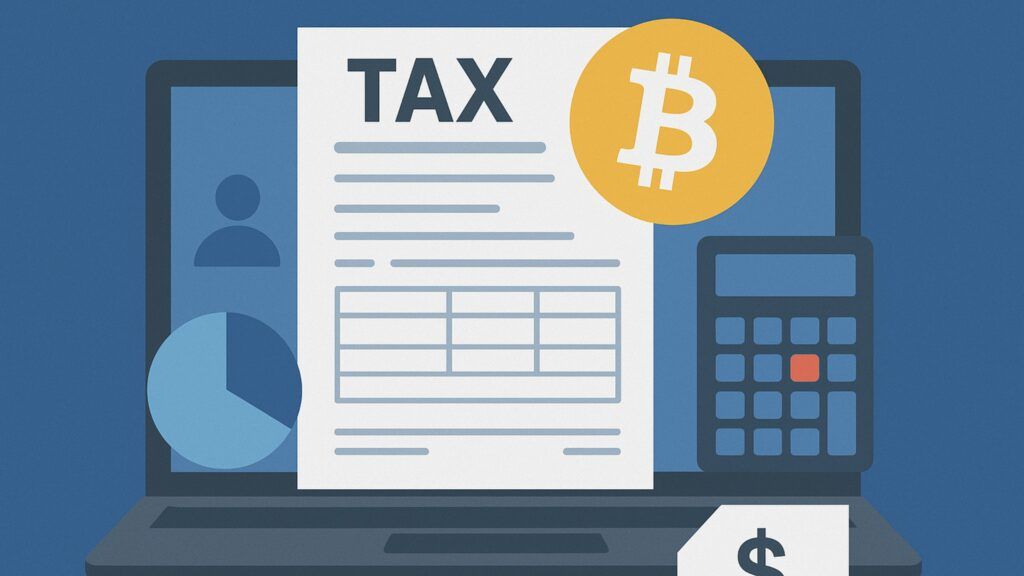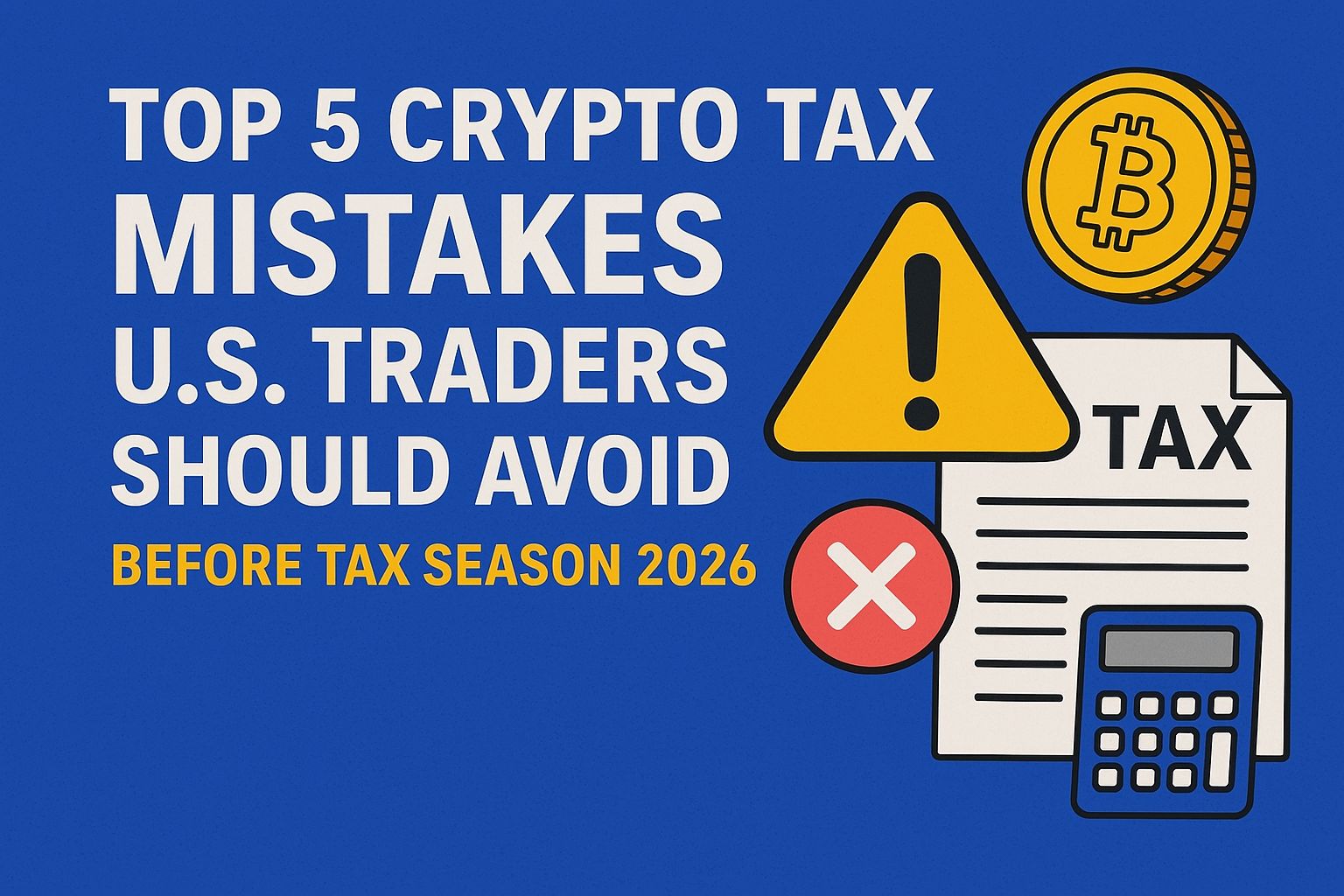Introduction
Cryptocurrency has changed how people invest, spend, and even play. Alongside trading, staking, and NFTs, a new trend has taken hold—crypto gambling. From online casinos that accept Bitcoin, to poker rooms on Ethereum, to blockchain-based games where tokens are wagered and won, the line between entertainment and investment keeps blurring.
But while the platforms feel futuristic, one thing is very traditional: taxes. The IRS sees no difference between winning dollars at a Las Vegas casino and winning tokens on a crypto gambling app. If you’ve ever wondered how this works, this guide is for you.
Key Takeaways
- Gambling winnings in crypto are treated the same as cash: always taxable.
- Losses can offset winnings, but only to a limit, and starting in 2026, only 90% will count.
- You may face two taxable events: when you win and when you later sell or trade your winnings.
- Keep meticulous records. The IRS expects details.
- Tools like CRPTM can automate the tracking and reporting, saving you time and reducing mistakes.
Are Crypto Gambling Winnings Taxable?
The answer is simple: yes.
No matter where you gamble, whether at a casino or an online site that runs on blockchain, if you win, it’s taxable income. The IRS requires you to report it. The tricky part is how crypto makes this more complex. When you win crypto, you have to calculate the fair market value (FMV) of the coins or tokens on the exact day you received them. That’s your taxable income.
Example 1
You win 0.05 BTC at an online roulette table. On that day, Bitcoin is trading at $40,000. That means you have $2,000 of taxable income.
Example 2
You win 200 USDT. Since stablecoins are pegged to the dollar, your income is $200.
But here’s the kicker: if you keep the coins and later sell them at a different price, you’ll also generate a capital gain or loss.
So crypto gambling can actually create two taxable events:
- Income at the time of winning.
- A capital gain or loss when you later dispose of the coins.
What Happens with Gambling Losses?
This is where things get nuanced. Losses can help offset your tax bill, but they don’t work like normal investment losses.
Rule until 2025- You can deduct 100% of your gambling losses, but only up to the amount of your winnings.
For example: if you won $5,000 worth of ETH but also lost $5,000 worth of BTC, you break even for tax purposes, meaning no taxable income or deductible loss.
However, if your winnings are higher than your losses (say you lost $6,000 but you won $7,000), you can deduct $6,000, up to the gambling winnings.
In short, you can deduct losses to the extent of winnings, not beyond.
Rule from 2026 onwards- The rules are changing. Starting in 2026, only 90% of your losses can offset winnings.
That means if you win $5,000 and lose $5,000, you’ll still owe tax on $500. Even though in reality you broke even, the IRS will treat 10% of your losses as non-deductible.
How Do You Report Crypto Gambling on Taxes?

Reporting crypto gambling isn’t as straightforward as walking away from a casino cashier with a W-2G slip. Most crypto platforms don’t provide official tax forms. That means you are responsible for your own records.
Here’s what you need:
- Winnings → Reported on Form 1040 as “Other Income.”
- Losses → Deductible on Schedule A, but only if you itemize.
- Capital gains/losses → If you later sell the coins, reported on Form 8949 and Schedule D.
- Detailed records → Keep track of wallet addresses, transaction IDs, timestamps, and the fair market value at the time of each win or loss.
Because crypto is volatile, even a few hours can change the value of your winnings. That’s why it’s critical to record the exact FMV at the moment you win.
Platforms like CRPTM simplify this by automatically tagging gambling transactions, applying the correct tax treatment, and mapping everything to the right IRS forms.
Why Crypto Gambling Is More Complicated Than Cash Gambling
If you’ve gambled in cash, you know the routine. You win, you get a slip, you file taxes. But with crypto, things get complicated.
Here’s why:
- Volatility: The token you win today might double or crash tomorrow, which affects your eventual capital gains.
- Recordkeeping: Casino’s issue official forms. Crypto casinos usually don’t, leaving you responsible.
- Global platforms: Many crypto gambling sites operate overseas, but U.S. taxpayers must still report income.
- Evolving regulations: With new reporting rules like Form 1099-DA expected from 2025–2026, it’s likely crypto gambling platforms will have to start reporting directly to the IRS. That means less anonymity and more oversight.
Common Questions About Crypto Gambling Taxes
- What if I gamble on an offshore crypto casino?
- It doesn’t matter. If you’re a U.S. taxpayer, the IRS expects you to report all winnings, no matter where they come from.
- Do I pay tax if I don’t cash out?
- Yes. The IRS taxes you on the value at the time you win, even if you keep the tokens in your wallet.
- What if I lose more than I win?
- You can deduct losses only up to the amount of your winnings. Extra losses cannot reduce other income like salary or trading profits.
- Do stablecoin winnings work differently?
- No. Since stablecoins mirror the dollar, their value is easy to report, but they’re still taxable as gambling income.
- Can I get audited for gambling in crypto?
- Yes. In fact, with new IRS reporting rules, audits may increase. Having clean records through a tool like CRPTM will make your life much easier.
Final Thoughts
Gambling with cryptocurrency feels exciting, modern, and global. But when it comes to taxes, the rules are very old school. The IRS doesn’t care if you win in dollars, chips, or digital coins, it’s all taxable.
The challenge is that crypto adds layers of complexity: fluctuating values, lack of standardized reporting, and international platforms. That’s why planning matters.
With good records and the right tools, you can enjoy the thrill of the game without the headache of tax season. After all, while you may not always win at the tables, you can always win by staying compliant.
Disclaimer: The information presented on this website is intended for general informational purposes only and should not be interpreted as professional advice from CRPTM. CRPTM does not offer financial advice. We strongly recommend seeking independent legal, financial, tax, or other professional advice to determine how the information provided on this website applies to your specific circumstances. CRPTM assumes no liability for any loss incurred, whether due to negligence or otherwise, resulting from the use of or reliance on the information contained herein.



